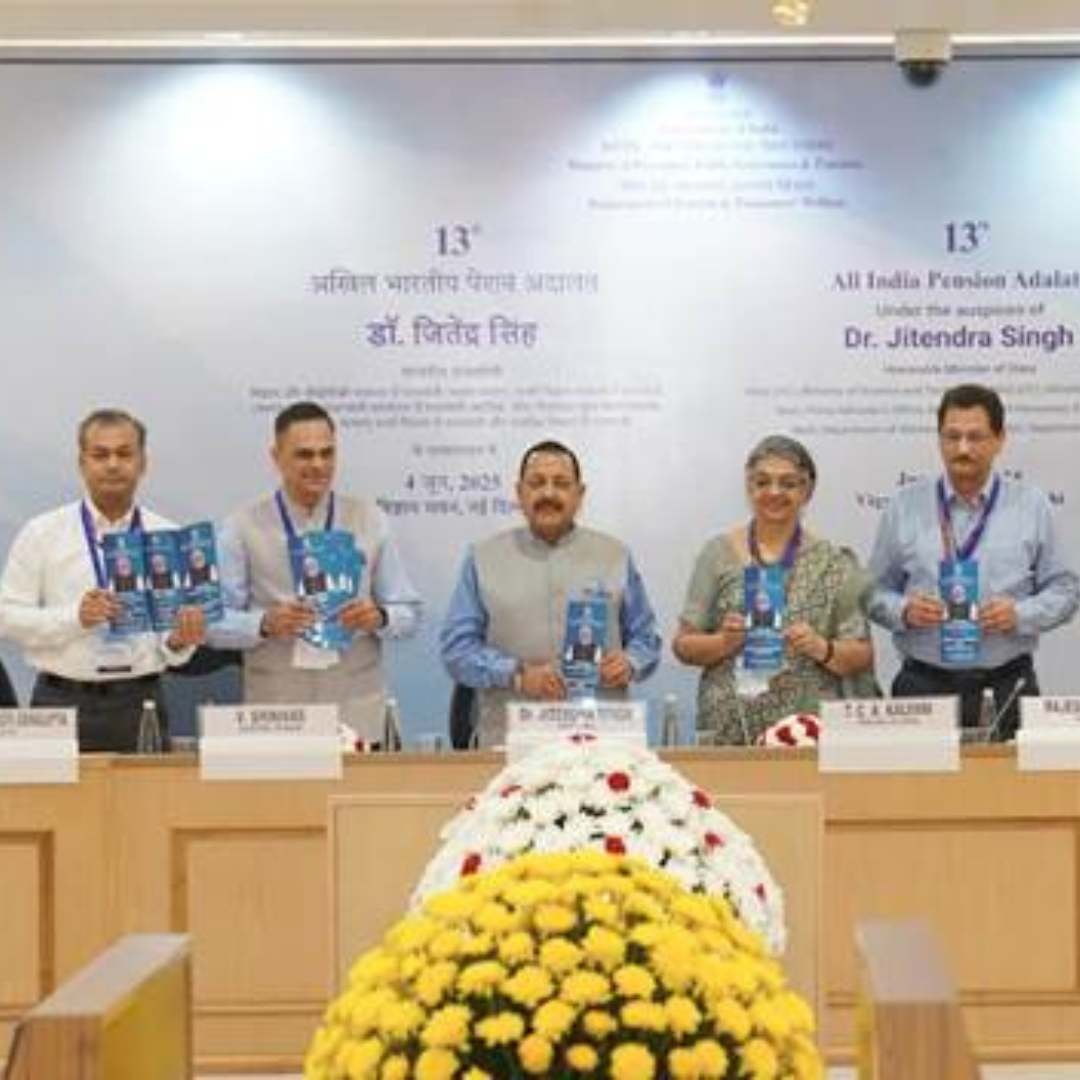Union Minister of State (Independent Charge) for Science and Technology; Earth Sciences, and Minister of State for the Prime Minister’s Office (PMO), Department of Atomic Energy, Department of Space, Personnel, Public Grievances and Pensions, Dr. Jitendra Singh, on Wednesday, emphasized the urgent need for a time-bound, compassionate, and technology-backed mechanism to address pension-related grievances. His remarks came during the 13th All India Pension Adalat, held in New Delhi, where he reaffirmed the central government’s commitment to placing citizens, especially senior citizens, at the core of governance—a principle championed by Prime Minister Narendra Modi.
Addressing pensioners, government functionaries, and senior departmental representatives from across India, Dr. Singh highlighted the Pension Adalat as one of the most citizen-centric administrative reforms initiated in recent years. “A pensioner, who has served the nation selflessly for decades, must not be made to suffer procedural delays or bureaucratic hurdles in their twilight years,” he said, adding that grievance redressal should be proactive, not just reactive.
Since its inception in September 2017, the Pension Adalat has heard 25,416 cases, with 18,157 resolved successfully—translating to a resolution rate of over 71%, which the Minister cited as an indicator of the initiative’s growing efficacy. He urged a “whole-of-government” approach, underlining the need for inter-departmental coordination to eliminate unnecessary delays, especially in family pension cases, which formed the thematic focus of this year’s Adalat.
Honouring Pensioners With Dignity
During the event, Dr. Singh released a special publication titled “Brave Soldiers and Veer Naariyan,” which compiled success stories from the 12th Pension Adalat. The booklet underscores the government’s resolve to honour not just defence veterans, but also widows (veer naaris) and families of armed forces personnel whose pension grievances had long remained unresolved. These human stories, Dr. Singh said, reflect the empathy-driven governance model the country is striving toward.
One such inspiring case included Jasoda Devi, who finally received her pension dues after 36 years, and Anita Kanik Rani, who was granted Rs. 20 lakh in family pension arrears on the same day her grievance was addressed. These accounts are now being shared widely through fliers and digital platforms by the Department of Pension and Pensioners’ Welfare (DoPPW) to inspire trust and awareness among pensioners.
Leveraging Technology for Greater Access
Dr. Singh stressed the importance of digital tools like CPENGRAMS (Centralized Pension Grievance Redress and Monitoring System) to ensure real-time monitoring and faster resolutions of complaints. He encouraged departments to widen the digital footprint of such initiatives so that even pensioners who cannot physically attend the Adalats can still participate and have their voices heard.
“These Adalats are not just grievance forums—they symbolize the government’s commitment to inclusive and respectful administration,” he remarked. “Technology must not become a barrier, but a bridge that connects pensioners—no matter where they are—with the system that owes them recognition and service.”
Administrative Accountability & Reform
Noting that most pension grievances stem from avoidable procedural errors and delays, Dr. Singh pushed for streamlining processes, simplifying documentation, and digitizing pension records. He emphasized that pensioners should be treated not just as claimants, but as respected members of the government family whose lifetime contributions deserve institutional honour.
He also lauded the DoPPW for introducing reforms such as simplified Pension Payment Orders (PPOs), integrated grievance dashboards, and citizen-friendly communication mechanisms. These changes, he noted, are gradually reshaping the way government departments engage with pensioners.
The Road Ahead: Empathy, Efficiency, Empowerment
In his concluding remarks, Dr. Singh called for more innovative, citizen-centric, and empathetic policies in pension governance. He pointed out that timely redressal is not merely an administrative duty—it is a moral responsibility. He reiterated that the larger vision of governance under PM Modi would remain incomplete unless retirees and senior citizens are made to feel safe, valued, and heard.
“The dignity of India’s pensioners is not negotiable. Our governance model must reflect urgency in delivery and empathy in execution,” the Minister affirmed.
As the 13th All India Pension Adalat concluded, it left behind not just a trail of resolved grievances, but a renewed sense of trust and hope among thousands of India’s senior citizens. With technology as an enabler and empathy as its compass, the government is striving to build a future where every pensioner’s journey after service is marked by respect, security, and peace of mind.




